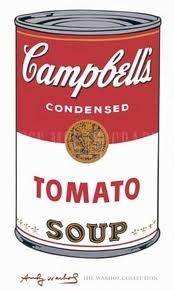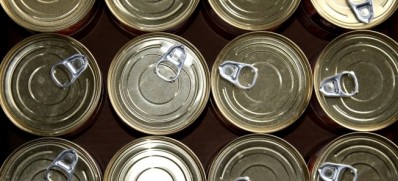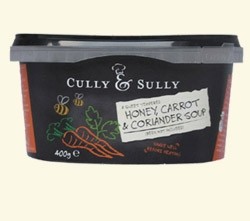FSA defends BPA cans after Campbell’s Soup ban

The chemical, used in can linings and packaging, has been linked to a range of health disorders including breast and prostate cancer, infertility, early puberty in girls, type-2 diabetes, obesity and attention deficit hyperactivity disorder.
Campbell’s, which manufactures dried soups in the UK, has already started to use alternatives to BPA in some soup packaging. The firm is working to phase out the use of BPA in the lining of all its canned products.
But the US soup and sauce manufacturer stressed that it believed BPA was safe. It did not expect the decision to result in significant cost increases.
No risk to consumers
An FSA spokeswoman told FoodManufacture.co.uk that: “Our current advice is that BPA from food contact materials does not represent a risk to consumers. But the FSA will look at any new piece of work to see if it has any implications for our advice to consumers.”
She added: “The FSA bases its advice on the body of scientific evidence and the opinion of independent scientists.”
The FSA planned to review its policy on BPA after the European Food Safety Authority (EFSA) published a new opinion on the chemical later this year.
An EFSA spokeswoman said that if its review showed a significant risk from BPA contamination, the authority would act immediately to propose a ban on its use in packaging and labels. If not, individual Member States should determine whether a ban was necessary, she said.
But US health campaigners Breast Cancer Fund (BCF) and Healthy Child Healthy World (HCHW) welcomed Campbell’s decision.
Gretchen Lee Salter, BCF policy manager, said: “Campbell’s decision to move away from BPA is a victory for consumers, who have been demanding this change. To truly be an industry leader, the company now needs to fully disclose the timeline for the phase-out and the alternatives that will be used.”
Toxic chemicals
Rachel Lincoln Sarnoff, HCHW executive director, said: “Parents want to be sure when they serve Campbell’s Soup to their kids that it is free of toxic chemicals that contribute to disease. I commend Campbell’s for taking this first step—as well as the concerned parents and consumers who made their voices heard in the boardroom and at the checkout counter.”
Meanwhile, international label manufacturer, Bizerba has changed processes at its factories to eliminate the need for BPA.
Marc Büttgenbach, the firm’s sales director for labels and consumables, said: “We are certain that the printing inks used to make our labels are harmless. Thus we are clearly positioning ourselves at the forefront of the market.”
But he added: “Till operators that have an above-average level of contact with labels and thermal till rolls [formerly containing BPA] can breathe a sigh of relief.”
FoodManufacture.co.uk's sister website FoodProductionDaily.com reported on March 8 that Campbell's planned to phase out BPA in all food cans by 2015.

















